Activists Disrupt Economic Development Conference on Behalf of Lab Monkeys
The News
Hendry County, Florida, a rural area virtually unknown outside of its own borders, is hardly a hotbed for animal-rights activism. Perhaps that is why Jessica Thomas, a nearby resident, surprised even herself when, during a conference of regional government and business leaders, she jumped onto the stage to display her #MonkeyGate t-shirt to protest County officials’ efforts to turn Hendry into the nation’s lab monkey breeding capital. Her spur of the moment decision led to several local news stories that project their message to a much wider audience.
After she was escorted off the stage, Ms. Thomas told the audience, “We’ve had enough of monkey experimentation and monkey abuse happening in Hendry County, and everyone needs to know about it.”

Activist Jessica Thomas, who lives near one of the four monkey breeding facilities, says, “We have to stand up against injustice.”
Hendry County is now home to two primate breeding facilities that house thousands of monkeys. Two more that would bring thousands of additional monkeys are under construction, and area residents are determined to shut them down.
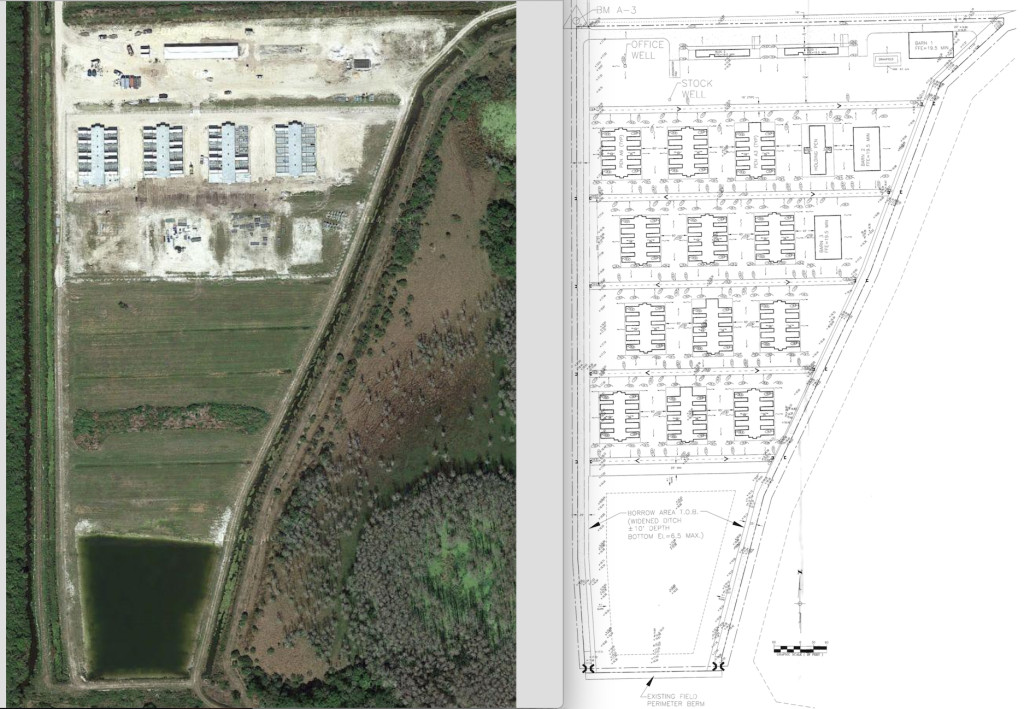
Bioculture, a company that was expelled from Puerto Rico by its Supreme Court, is one of two new monkey breeding facilities under construction in Hendry County.
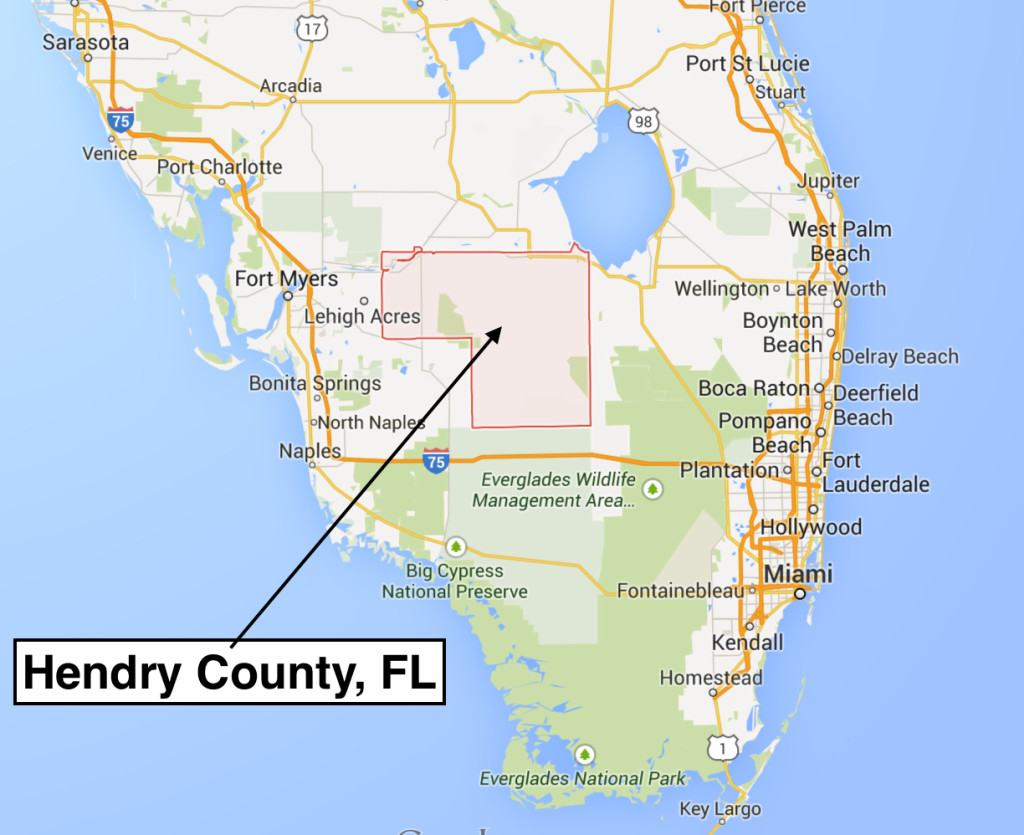
Hendry County is home to four facilities that breed monkeys for lab experiments. Two are fully operational; two are under construction.
In addition to animal cruelty, neighborhood activists have expressed grave concerns about the spread of disease from the monkeys to humans and other animals; groundwater contamination with toxic monkey waste; the effect of monkey breeding facilities on property values; and the impact of escaped monkeys on the local environment. The nearby Everglades are already under siege by non-native invasive species.
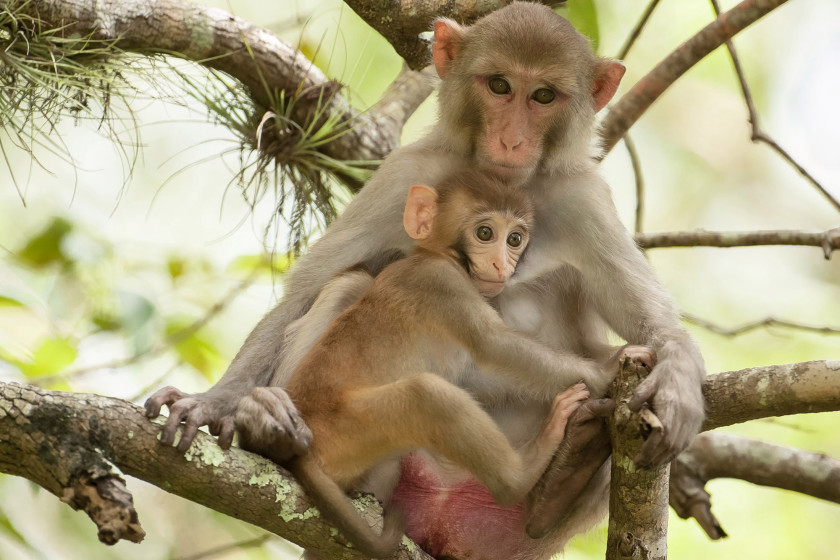
Hundreds of non-native wild macaque monkeys with herpes B virus live in Florida (photo: Graham McGeorge/ Barcroft Media)
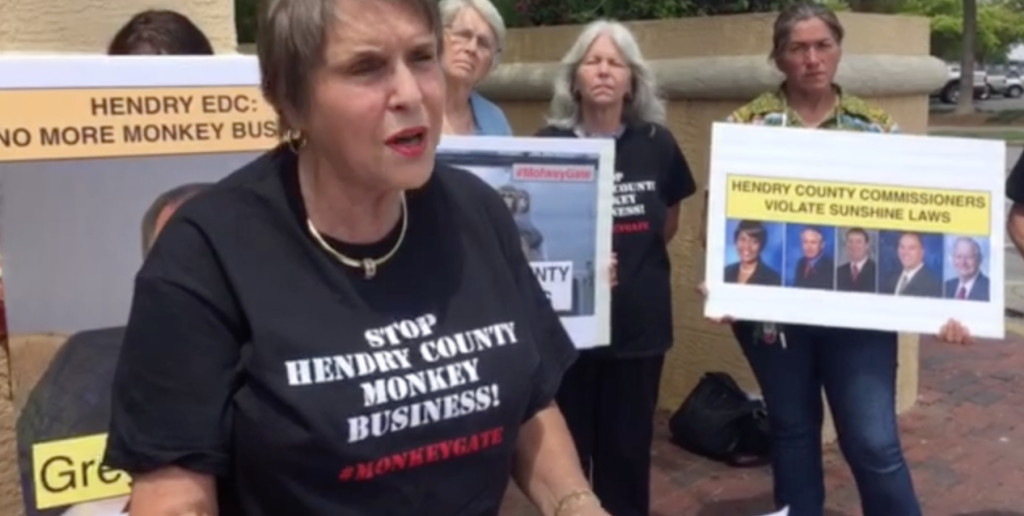
Dr. Madeleine Doran tells reporters that residents do not want their community to be the nation’s lab monkey breeding capital.
“County officials, who have much to gain financially from these monkey breeders, thought they could sneak these companies into our community because most of us are too focused on making ends meet to put up resistance,” Jessica Thomas said after the disruption. “They didn’t think residents would rise up to protest their secrecy, not to mention the cruelty and public health issues associated with breeding thousands of monkeys in and near residential areas.”
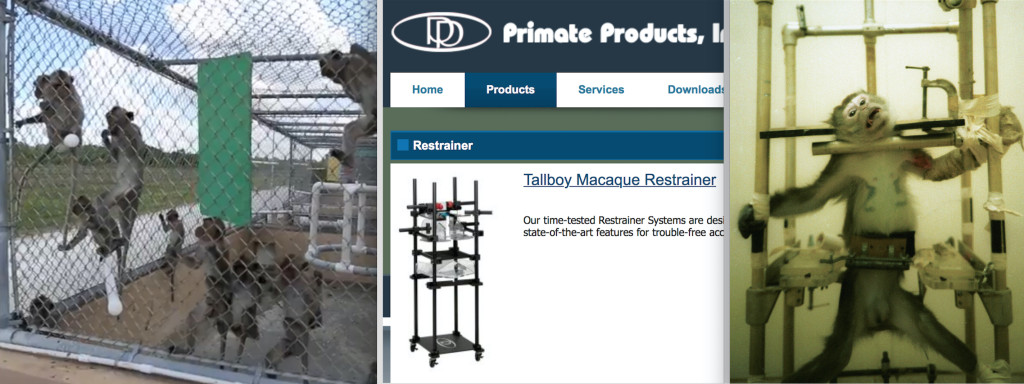
In March, a whistleblower said that Primate Products, a Hendry County monkey breeder that makes primate restraining devices, was illegally performing c-section abortions on pregnant monkeys in order to harvest and sell the fetal organs.
After the disruption, Ms. Thomas told reporters, “It was a spur of the moment decision to jump onto the stage. I saw all of these community leaders assembled in one place, and I realized that, if I don’t protest the people responsible for these injustices in this high profile setting, then how can we expect them to take our demands seriously? After all, they’ve refused to answer our questions for over a year.”
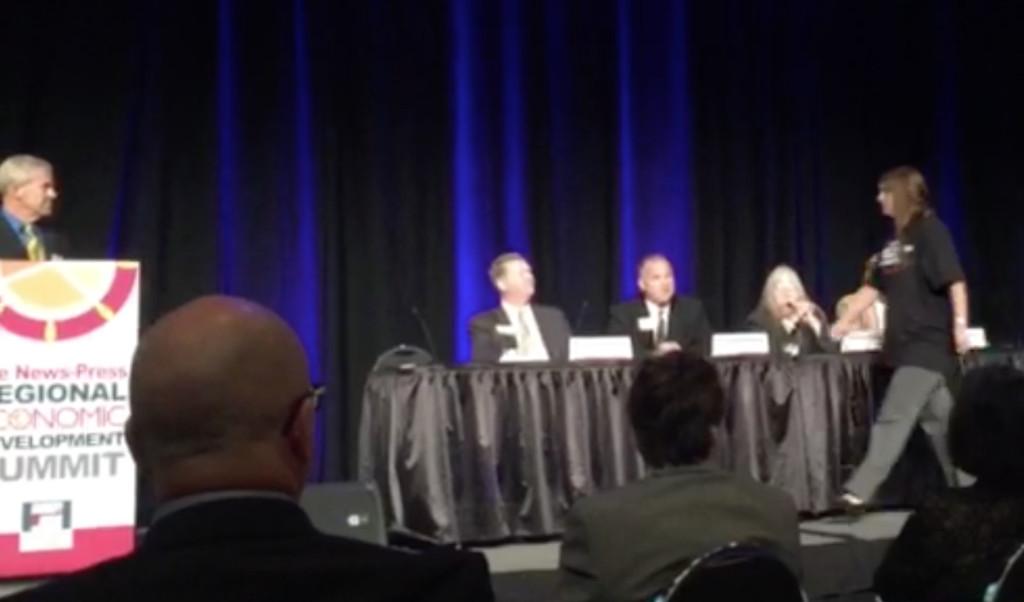
Jessica Thomas disrupts Greg Gillman, the President of the Hendry County Economic Council who is largely responsible for bringing monkey breeding companies into the County.
Independent journalist Jane Velez-Mitchell of Jane UnChained, who traveled from New York to report on the press conference, asked Hendry Commissioner Karson Turner why the County didn’t hold public hearings before approving the monkey breeding facilities, as required by Florida’s Sunshine Law. In response, Mr. Turner, who has been an advocate for the facilities, said he would meet with the community. “That is welcome news to those who have been trying to have a dialog with the Commissioners for over a year,” said Velez-Mitchell.
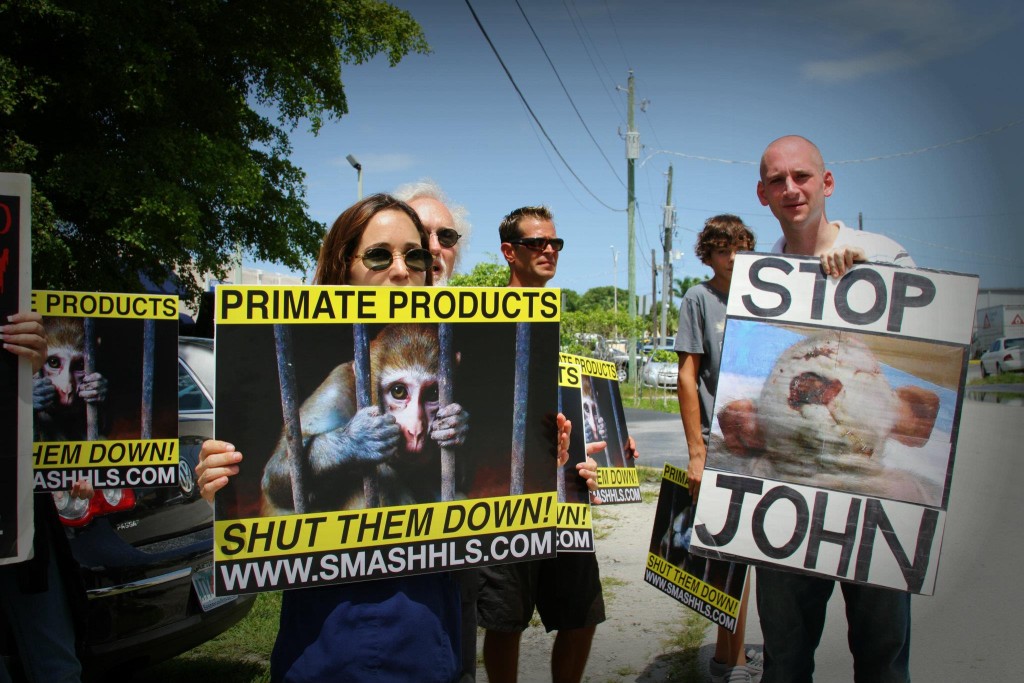
Animal rights activists in Florida protest Primate Products, one of four monkey breeding facilities in Hendry County.
In November 2014, the Animal Legal Defense Fund (ALDF) filed a lawsuit against Hendry County or failing to hold a public hearing about the approval of Primera Science Center, one of the two new monkey breeding facility approved in secret by County commissioners. The lawsuit is ongoing.
Your Turn
Please share this “MonkeyGate” Facebook page with people you know in Central and South Florida: Put an End Hendry County Monkey Breeding Facilities.
Ask Hendry County’s five commissioners to stop the construction of the Bioculture and Primera Science Center monkey breeding facilities pending county and/or state investigations: bocc1@hendryfla.net, bocc2@hendryfla.net, bocc3@hendryfla.net, bocc4@hendryfla.net, bocc5@hendryfla.net
Filed under: Experimentation
Tagged with: Hendry County, Jane UnChained, Jane Velez-Mitchell, monkey breeding facility, monkeys, vivisection



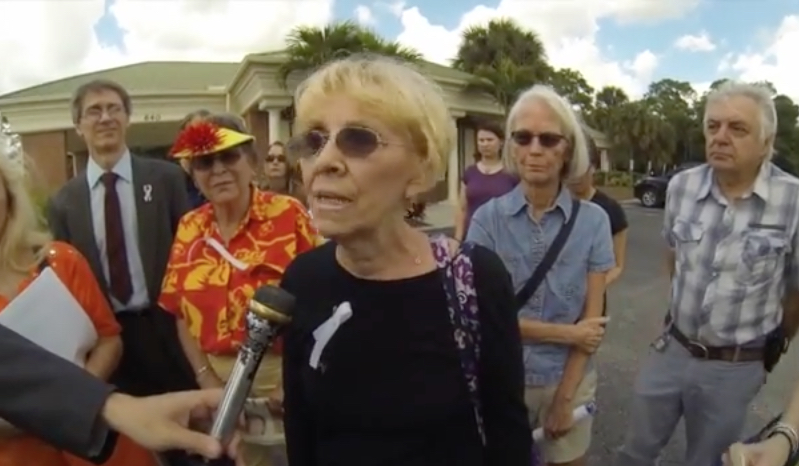


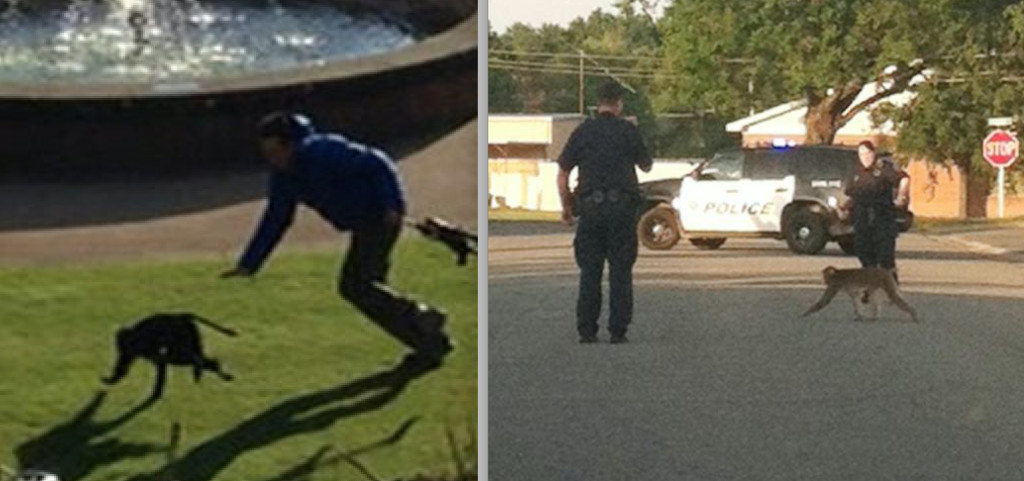
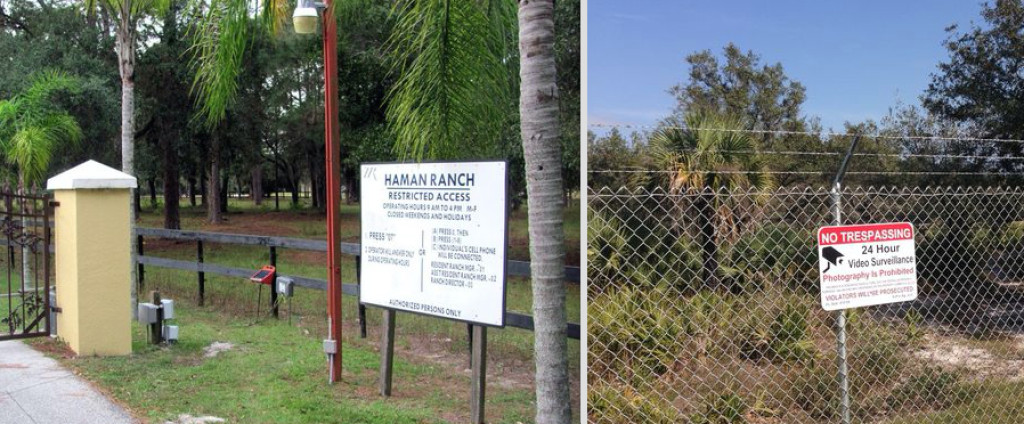
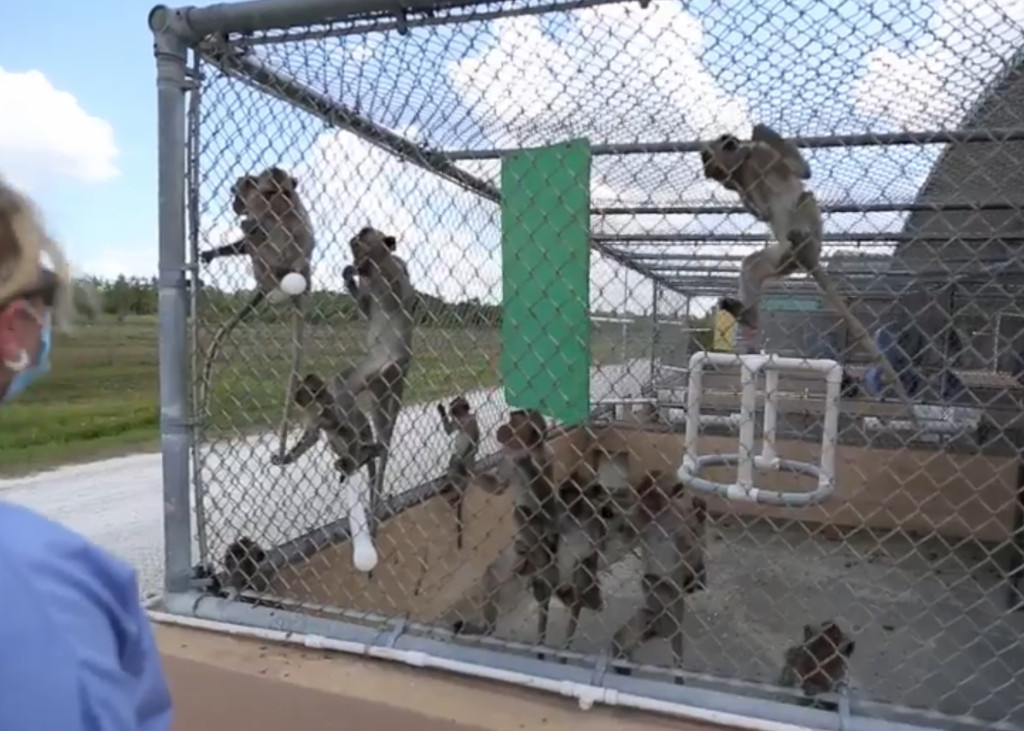
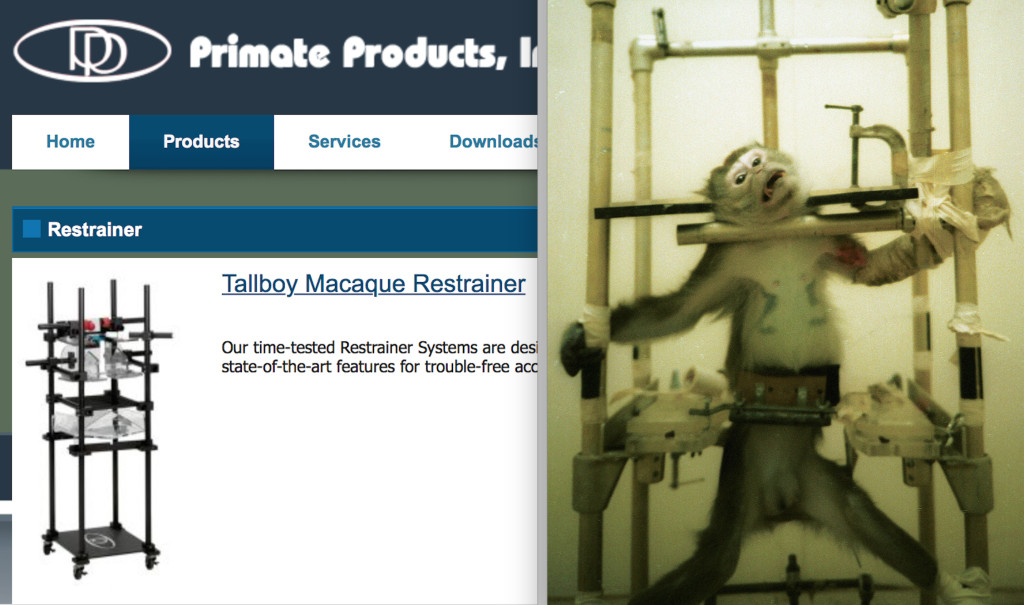
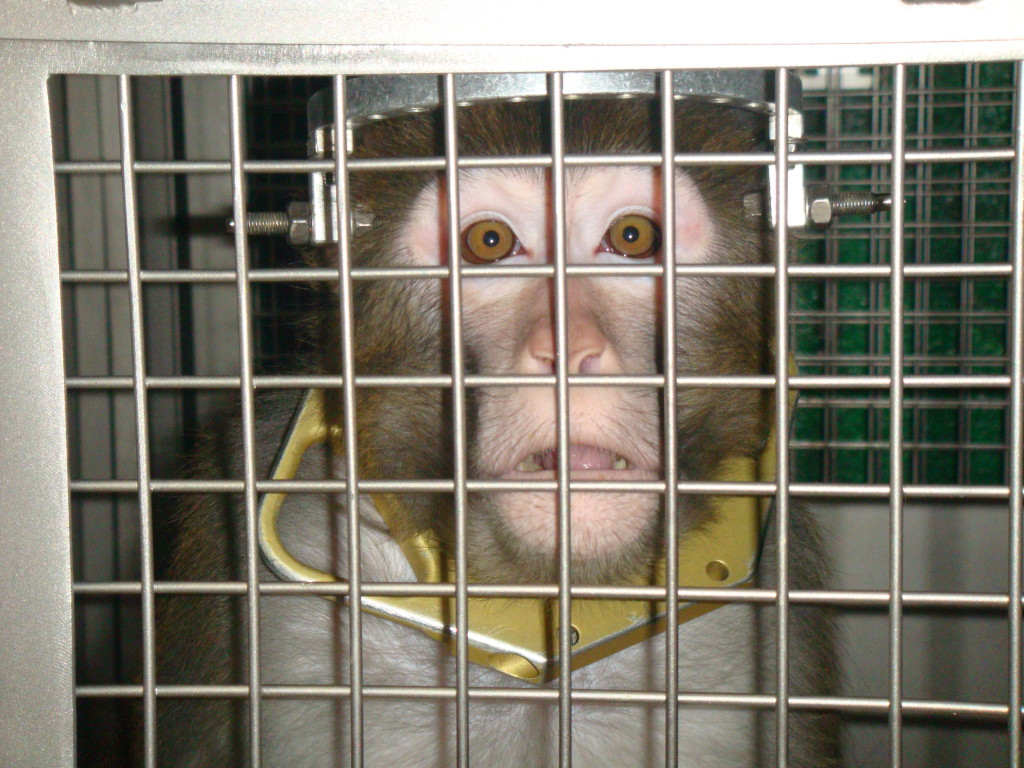
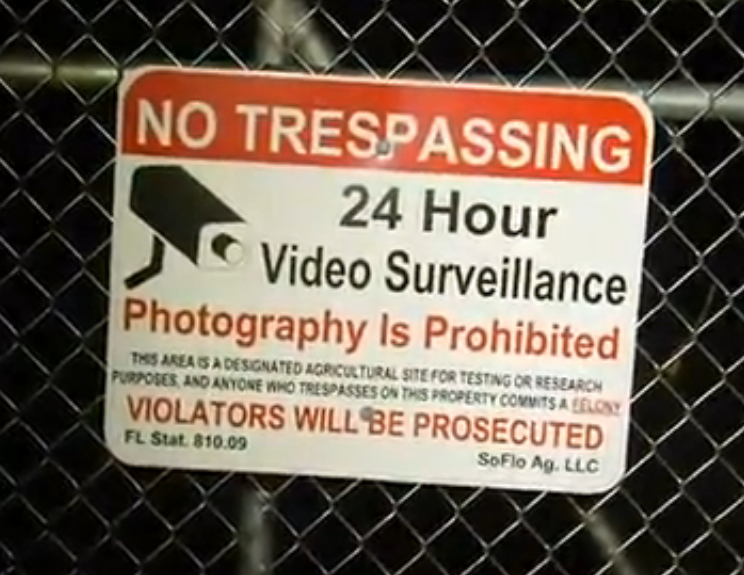
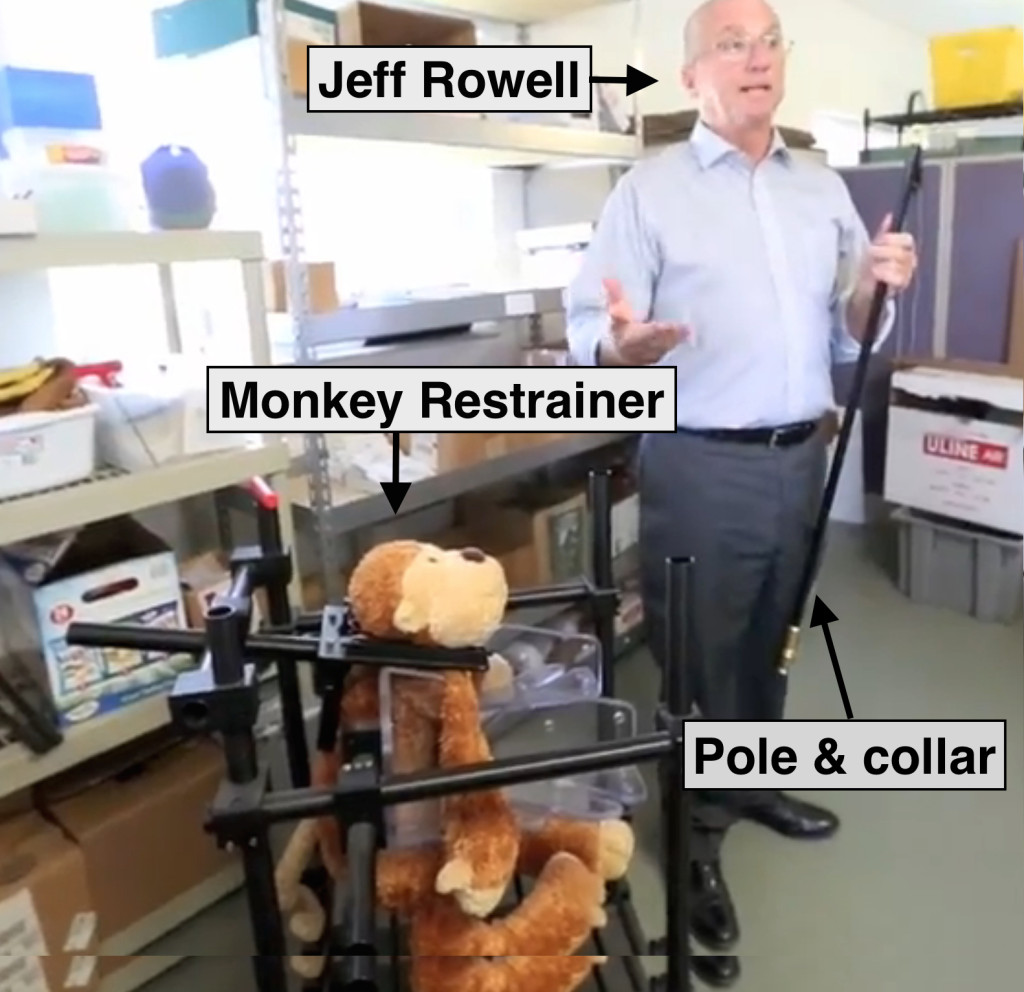
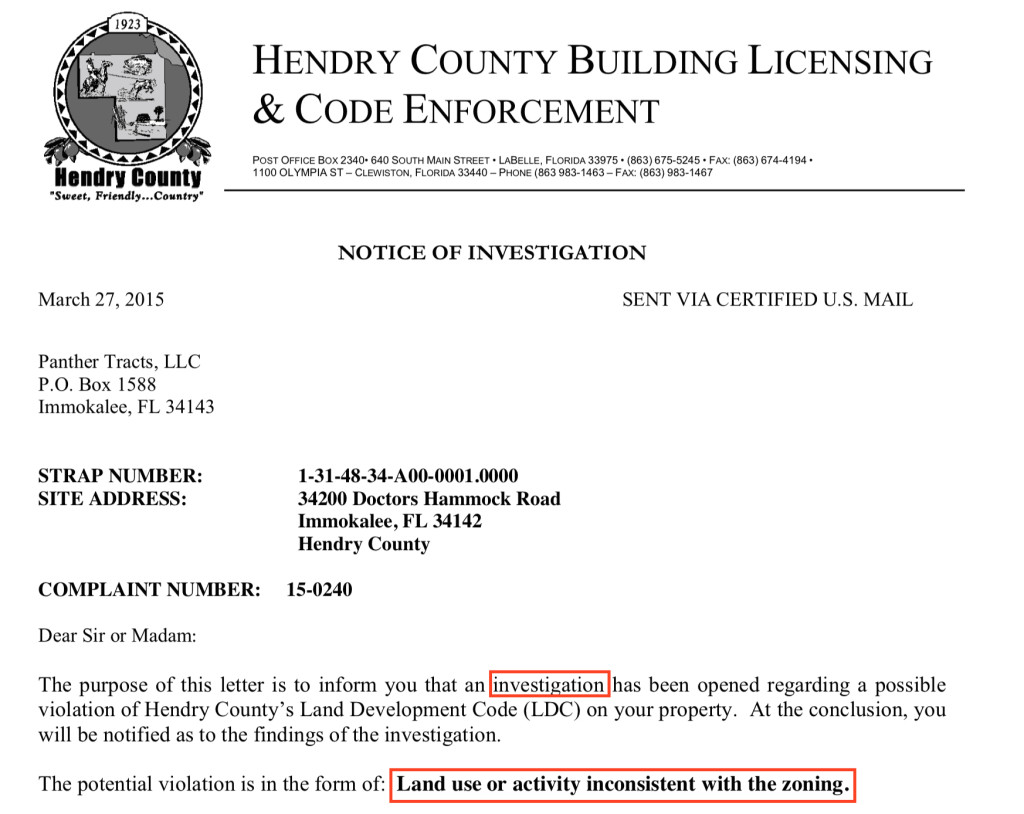
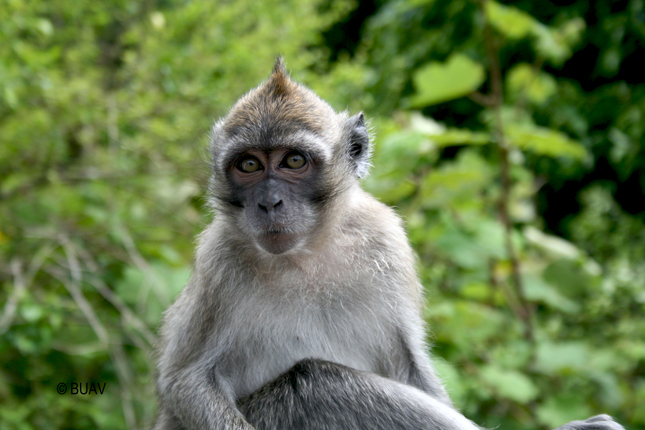
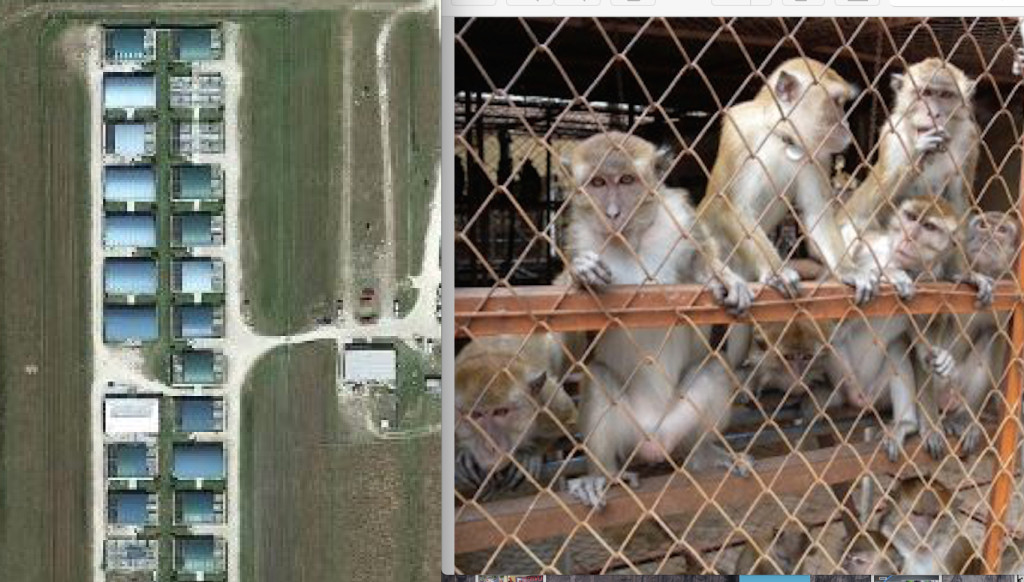
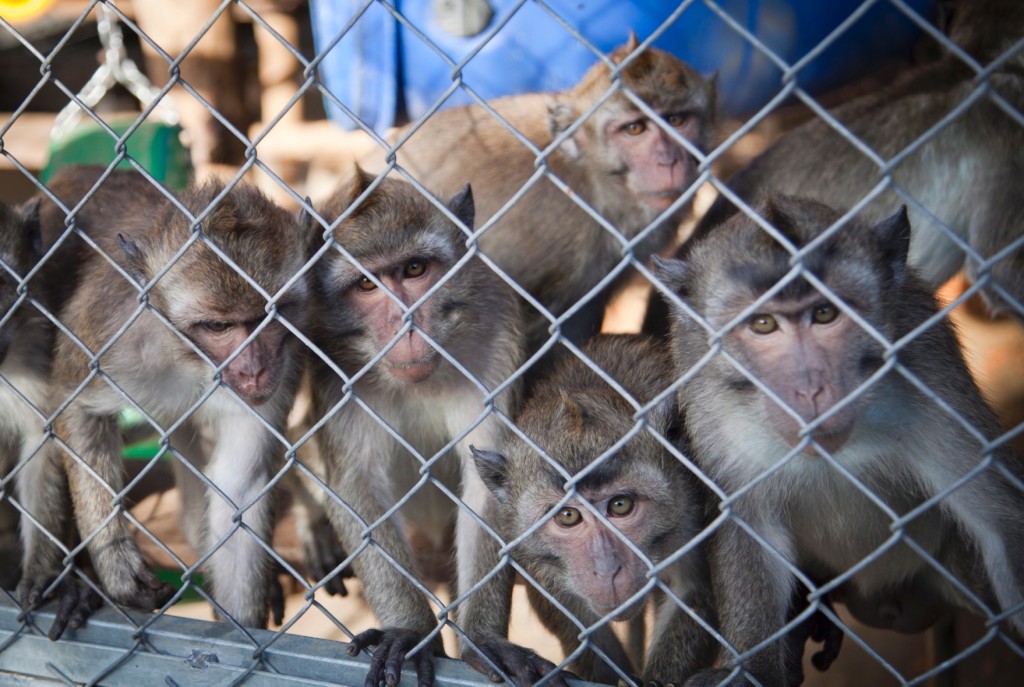
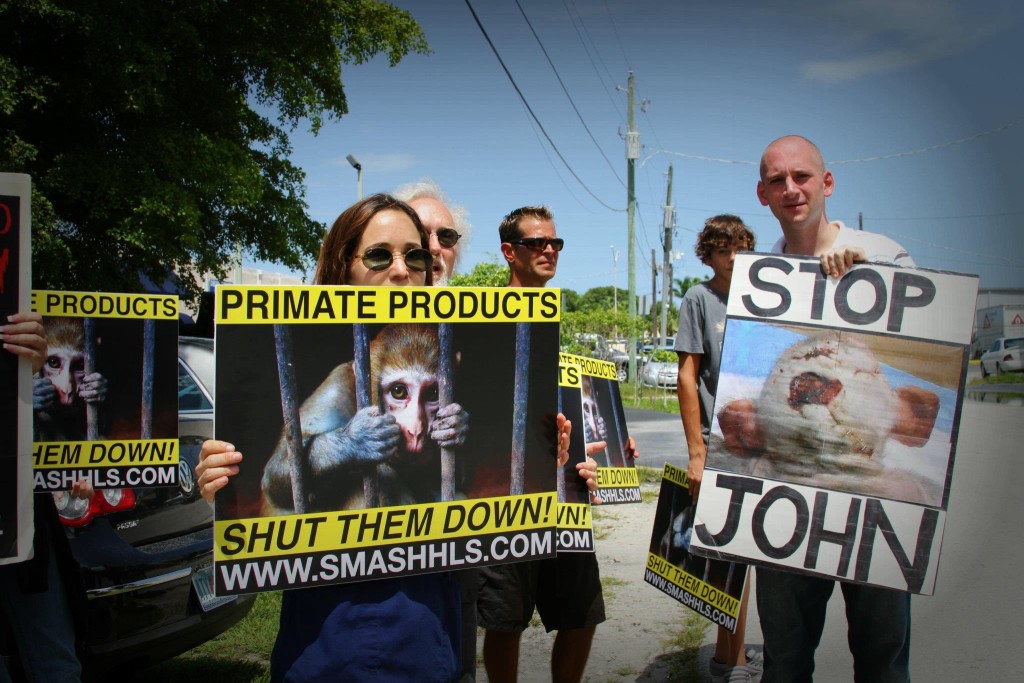
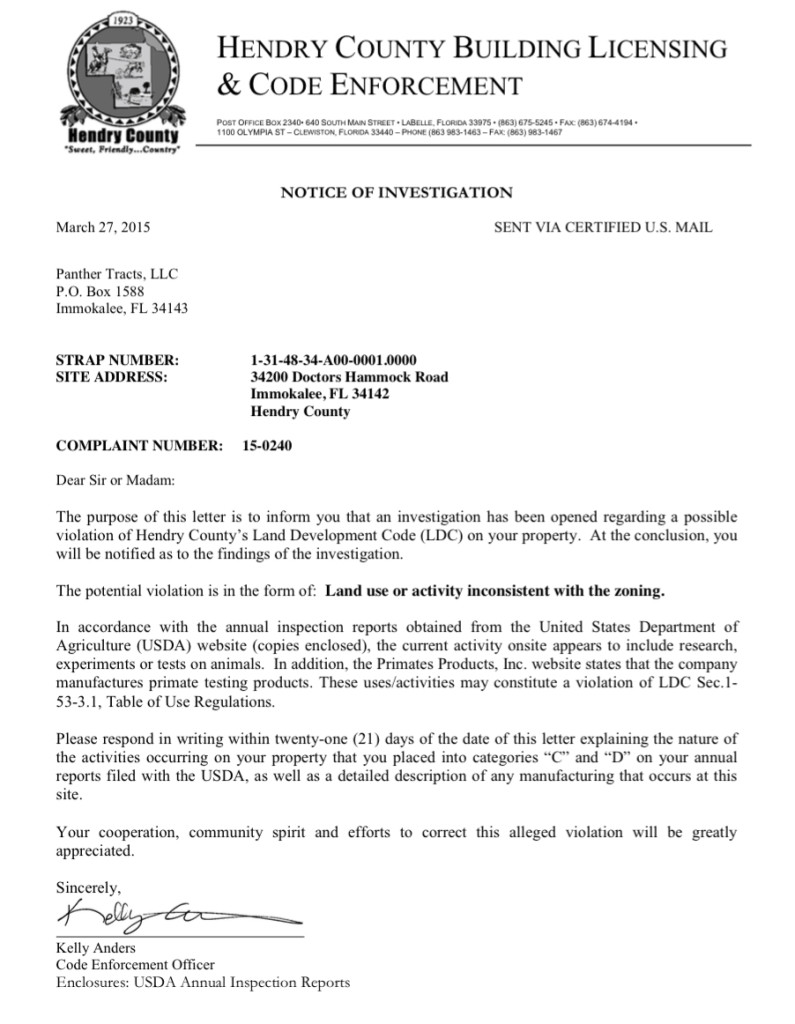
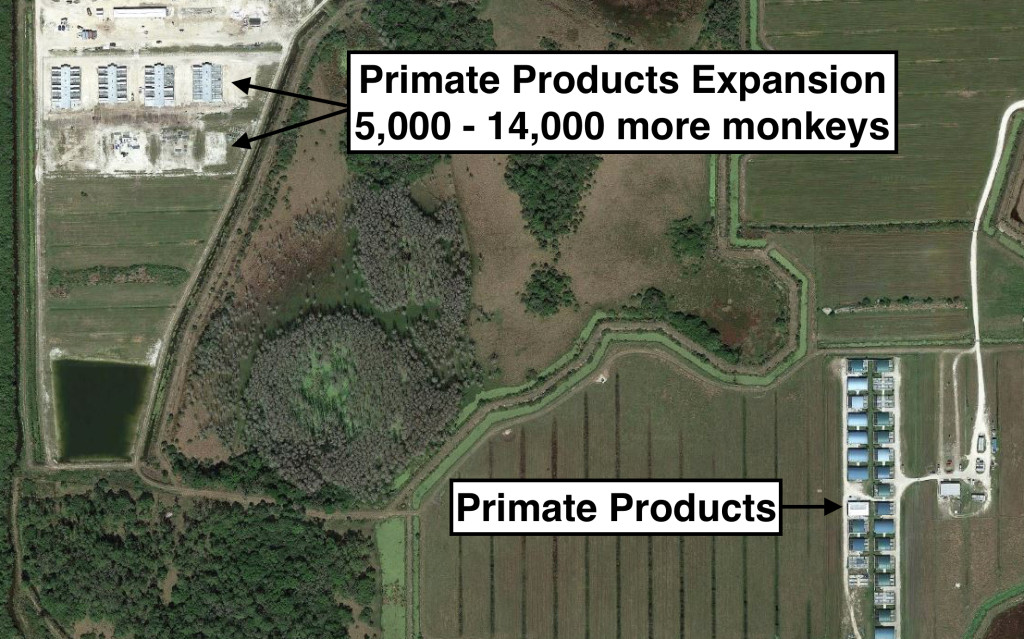
Follow Their Turn